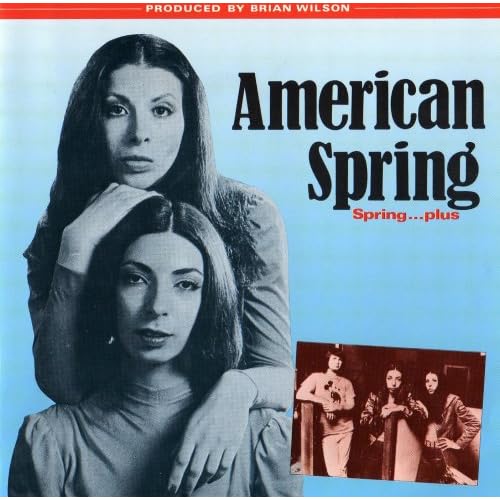DOOMSDAY SEED VAULT OPENED IN ARCTIC NORWAY
ANALOG SPACE WIZARD
[1971] Deep synth adept Dan Sandin leads the viewer into a 'Five Minute Romp Through the IP" (Image Processor)
sent by analog adept Mike B
ART BRUT METH FIEND
from A&E's Intervention. Get to the part about her journals. Don't do drugs.
sent by visionary doodler Maya M
EROTIC FALCONRY
Soft-core Ornithology
STUFF WHITE PEOPLE LIKE
latest: #78: Multilingual Children
sent by white person XSTINA
>>In particular, the 10 Rap Songs That White People Love Best (from catsandbeer.com)
ARACHNID GRIFT
Male Spiders Play Dead for Poon
sent by natural grifter Alex B.
RAP ACHIEVES EUROCHEESE INTENSITY
Wiz Khalifa - Say Yeah / frontrunner for 2008's most ridiculous sample, unholy offspring of club music infusions in Timbaland, Timberlake, Outkast, Akon, T-Pain
sent by synth baller Jonathan F.
Friday, February 29, 2008
TOO MUCH INFORMATION (#1)
Tuesday, February 26, 2008
ZOMBIE-ZOMBIE: THE GROWING MENACE
FRENCH DUO BRINGS THE LATEST IN ROMERO DISCO
Zombie-Zombie: "Driving This Road Until Death Sets You Free"
AND TOTALLY SEE ALSO
John Carpenter: The End
For more doomy electro-disco
BUT TO BE REAL FOR ONE SECOND, NONE OF THIS IS AS SCARY AS
TEAR DA CLUB UP - TRIPLE SIX MAFIA (DJ BLACK DRAGGED & CHOPPED MIX)
Zombie-Zombie are a French electronic-rock duo.
Who have a new album coming out on March 3 called A Land for Renegades. "Driving This Road" is the lead track.
They play portentous synth-discoey or electro-rock jams with militaristic beats. The soundtracks Carpenter composed to his own low-budget 70s & 80s exploitation films seem like a big influence.
I heard 'Driving This Road' a while ago and loved for its ring-modded minimal synth riff and general minimal sinisterism. I kept waiting for the album to stray from the formula that makes 'Driving This Road' so effective and it never did, it remains very much in the pocket, very tight and concise. There's a broad parallel to be drawn with Deerhunter, actually, as they both take certain brooding, stiff joy-divisiony elements and stretch them out into spacier jam formation.
I downloaded the album from itunes with fingers crossed. The same 'please don't suck' fingers that were crossed when, after several days, I finally listened to the remainder of OK Computer after being blown away by 'Paranoid Android'.
The release of OK Computer has something structurally in common with zombies, and I'm not referring to the ones that have been created in the decade of its wake, those who stalk around in the stingy ghettos of the internet world with bleeding mouths, who eat one another's brains and have aching, starving stomachs that crave the next little Radiohead morsel (Thom singing 'Cabaret' on the toilet? Some helicopter sounds played backwards and overlaid with thin, brooding guitar?). No, both the album and zombies, specifically their movies, by which I mean movies concerning zombies. They're both events, in the philosophical sense. That's to say that in both cases, something intense happens to you that catches you off guard and compels your complete and urgent attention, and you then turn to look out the window or ring up a friend of yours, only to find that this phenomenon is going on outside as well, or over at your friend's house, and then it's going on in the whole neighborhood, then all over town, then spreading to the hills...
Full Disclosure: we here at the AC have a mild case of catastrophilia.
A Land for Renegades might be a concept album. It certainly feels like it. On the track 'What's Happening in the City', disorienting pitch-shifted voices make ominous statements about the state of things...they could very easily have been lifted from "Dawn of the Dead's" claustrophobic, panicked media transmissions: "I see all the people leaving in the city. Can you tell me what's happening in town? You will feel pain in your body...Your nose will bleed every time you think about it."
AC says:
We are psyched about these guys. We bet they totally like 80s horror movies and synth jams.
It kind of sounds like if Superstudio did set-design for a horror movie.
That would be awesome. You should look up Superstudio, you would like it.
It would be cool if ZZ came to play the United States.
But you see, while I would hesitate to call ZZ disco, I think a certain affinity for spacey-experimental disco can be found in their kraut-goth jams. (Kraut-goth, does that make it like, Nosferatu? It's not really vampire club music, though, that would be way more erotic and alluring. ZZ's music really does have that perpetual lurch of the brain-hungry undead).
I think this is a rather European phenomenon. If disco is to euro what rock is to the US, that's because they're also both the respective nomadic musical forces that can mutate and permeate all kinds of other styles and micro-styles. That's why in Europe and France in particular you have disco-metal (justice), space disco (Dirty Sound System), etc. While on the other hand if you want to communicate to american ears, particularly New York ears, you have to speak rock. Whatever you want to say, say it in a rock accent. That's why LCD Soundsystem is so effective because it's navigating between these two powerful nomad forces, disco and rock.
AC remains perplexed as to why techno (aka minimal beats) remains a distinctly european force. Why does America resist? is it some metric-system shit or what?
Seriously though, Tear Da Club Up (Dragged and Chopped). DJ Black is the Saint Paul of Houston rap, spreading the word after the death of the savior. He doesn't call it 'chopped and screwed' out of respect for the father, and as well 'dragged' is fitting because it's slower than screw. It literally sounds like you're dragging something, like a body. The beginning of the track could be a ghetto zombie soundtrack. TEAR DA CLUUBBBB UP TEAR DA CLUBBB UPPP. Northface jackets, bling and brains, smashing tables, knocking drinks over, blood on the dancefloor.
PS check out Black's myspace page, it is ill.
A LAND FOR RENEGADES is available now from itunes
Saturday, February 23, 2008
SO WET, YOU'RE LIKE A RAINFOREST
Brooklyn experimental-pop outfit Animal Collection minimitizes R. Kelly's bestial erotics.
R. KELLY: THE ZOO (ANIMAL COLLECTION REMIX)
Were one to feel a slight pang of doubt, understandable to be sure, as no life on this world, no matter how serene and secure, is free from such pangs, that cosmic disco was not of particular relevance in today early 2008, one would have to look no further than this recent B-side by LCD Soundsystem in order to encounter evidence to the contrary. The beat is discoey, slow, spaced, and at the end following a goof-off drum solo there's a weird synth-ed up detour which appears without warning.
LCD SOUNDSYSTEM:FREAK OUT/STARRY EYES
The recent recipient of glowing praise among the purveyors of contemporary indie music, El Guincho has often been described as a heavily tropacalia-inflected mutation of last year's Panda Bear solo album. There is not much reason to contend, dispute or enhance this description. There is reason, however, to dispute the claim made by the recent Pitchfork review that 'there's nobody else making music like this right now': Manu Chao, anyone?
EL GUINCHO: PALMITO PARK
Little is known to this writer about Mogollar other than it can be described by means of the phrase, 'Turkish progressive folk-pop of the 60s-70s.' An ill and mellow jam, all things considered.
MOGOLLAR: KATIP ARZVHALIM YAZ YARE BOYLE
Animal Collection cover art by Bret Pittman
PACEMAKER: THE LATEST IN BUM-RUSH TECH

THE PACEMAKER POCKET-SIZED DJ SYSTEM
is the latest in bum-rush technology. No longer must the earnest upstart-DJ wait so long in the shadows for the chance at sonic insurrection.
THE RASTA TAKEOVER HAS NEVER BEEN SO EASY
The introduction of the Pacemaker into today's life on earth means no more excuses ever again, excuses regarding not taking control of a fraught or unsettling audio environment and making a concerted effort to setting the party back on track. You need not be accompanied by several crates of records or a large, cumbersome mixing device. Once Skank DJ has been thrown from DJ boof or otherwise safely evacuated, lock yourself in and use all 120 GBs of the Pacemaker, an object slightly larger than objects like the P2P.
Others will thank you as they watch you wheedle your fingers around on the little wheels and produce DJing with this Pacemaker Pocket DJ system.
This product review brought to you by SUPREME MASTER TELEVISION
Monday, February 18, 2008
SIX STEPS TO SEDUCTION
USE AS DIRECTED. THIS BLOG NOT RESPONSIBLE FOR SIDE EFFECTS RESULTING FROM IMPROPER DOSAGE
SEE ME
KISS ME

TOUCH ME
THRILL ME
DO ME
SNUGGLE ME
1. Linda Perhacs - Chimacum Rain
Alone, a lysergic sylan choir
2. Derrick Harriott - Brown Baby (thx to Wade Z)
reggae funk of non-Caucasian intensity
3. Faites Le Proton - Casino Music
over synthesizers and tinny beats, swishy Frenchmen coo
4. Supermax - Lovemachine
70s Kraut-disco lothario offers libidinal aid
5. Cappuccino - Hell Dance With Me
Heavy dance strut, with near head-banging insistence, fuels tingling vocal epiphanies
6. American Spring - Sweet Mountain
Brian Wilson produced this warm, tinkly ode, whose opening lines close the circle with Linda's haunting verse.
Thursday, February 14, 2008
MASTA BINGUS: THE WAY OF THE DRUM
Relevant Audio:
Masta Bingus - Welcome to My Teepee
Weekend Prince - Win This War (Please Leave Now My Teepee)
Ricardo Villalobos - Enfants (Live)
Roberto Di Simone - Secondo Coro Delle Lavandaie The American Museum of the Moving Indian, the cherished Battery Park institution dedicated to preservation and celebration of heretofore under-heralded contributions by Native Americans to dance music, recently commissioned Brooklyn techno producer Masta Bingus to compose a new track in honor of the museum's centennial festivities. Bingus' dancefloor ode to traditional Native American hospitality underscores the traditional Native American shelter of teepee or 'wigwam' as being the original pre-white people version of the techno club.
AC presents MB's original mix, together with a Weekend Prince remix, not so much a remix as a altogether new track which is built from the original's tech-tribal stomp and twists it into a mopey synth-disco jam. Enjoy please.
Bingus is a natural choice for the AMMI's commission, as his forte is the combination with a perverse and cartoonish sense of characterization, unsurprising given his animation background. The words on 'Welcome to My Teepee' are those of a collaborator known for his remarkable Navajo vocal mimicry. The original text was quite long and appears here in highly truncated form, the remainder being set aside by Bingus for the production of an Indian-themed cartoon, which will greet visitors to the AMMI's Kidz In Da Teepee children's exhibit.
Ancient Teepee
The musicological premise of the AMMI is to emphasize the process of secularization by which the organized drum ritual of the Native American slid into to the modern electronic music spectacle. 'Welcome to My Teepee' helps reassert this genealogy, also while extolling the virtues of the teepee. Indians used to have ecstatic drum parties which were encased in temporary architecture as opposed to boring who gives a shit clubs. The clubs would go with them. They could make beats wherever they wanted.
Modern Norwegian Teepee with Bose speakers
From a broader critical perspective, the largest change once drum rituals went from being religious to secularized is that the psychological energy which is released or produced in the listener is no longer so rigidly directed. Without being so bound up with maintaining in ritual a connection between terrestrial and divine realms, the releasing of this energy makes manifest a fundamental ambiguity not only about rhythmic music but art in general, namely regarding the nature of catharsis. Music is a drug, and it all depends on the dose. You can never predict when it's going to get energy out of your system in a relieving, purifying, cathartic way, or whether it's going to jack you up, get you distressed and overstimulated, get you addicted and wanting more. This is arguably one of the biggest changes once art became de-coupled from its original cultic value.
***
As well a designer and video director, Masta Bingus operates out of a converted firehouse in Far Eastern Bushwick, where his closest neighbors are Pumps, a blue-collar exotic-dancer bar, which has elsewhere earned blog comment accolades such as this from "Slappy McGee III esq": The only skin bar I've been too wear the strippers have on aviator shades, sports coats and hoodies ... fucking awesome!, a lonely BP gas station alit in ghostly neon, a number of gnarly junkyards with the appropriate fauna, and an impressively desolate and fetid stretch of canal which seems to have as much of a chance of spewing into the river Styx as it does hooking up with the East River.
Of the number of Bingus videos on the web, the music clip for Hot Tub Johnny most embodies Bingus' process of getting one of his friends to act like an ass and then making a techno track out of it. The result is kind of disconcerting because it is kind of difficult to stamp the video with an origin or a context. Is it a joke? Is it for real? Like 'Teepee' it gives off the effect of having, in the middle of the night, turned on the television in a low-starred hotel somewhere in Eastern Europe, only to be harassed by an inexplicable transmission. Who are these goony ravers? Why do lights shine out of their punches? What should I do, now that I know that all kinds of things are up in this place?
Hot Tub Johnny - Let Me Tell You
Also recommended is Bingus' video for Laibach "B Mishina", viewable on the Bingus blog here
Addendum:
Two additional tracks in the tribal-chant vein have been added as supplements to the Masta Bingus - Weekend Prince throwdown: minimalist Ricardo Villalobos' highly-buzzed new track 'Enfants', and a very out-there song by Roberto Di Simone, experimental Italian conductor, together with his group, New Company of Popular Music. The blog Marathonpacks indicates that this track was recently the subject of an uncredited cover by the Japanese group OOIOO on their Thrill Jockey album TAIGA.
*for more on the Di Simone track see the entry on Marathonpacks blog here
Tuesday, February 12, 2008
ADDICTED TO NOTHING
or, WHY DJ SCREW = SAMUEL BECKETT

Phil Collins "In the Air Tonight" (DJ Screw Version)
Jonathan F. sent us this track, accompanied by the appellate "proto-Weekend Prince", apparently in reference to the latter's respective predilections for "In the Air Tonight" and the narcotized tempos of Houston rap. As AC is concerned with music, its criticism, and the conditions which make its criticism possible, we have to stop and ask ourselves some questions:
1.Is cough syrup addictive?
2. Are slowed-down beats addictive?
3. Why is 'In the Air Tonight' so awesome compared to the nauseating remainder of Collin's solo work?
4. What does the adjective 'proto' indicate?
5. Does Phil Collins like cough syrup?
1. Yes. Physical addiction is debated by experts, psychological addiction is well-documented. In 2005, six pharmaceutical doctors were put on trial in Houston for illegally distributing the drug. A report from ABC News at the time says: "Besides purple stuff and syzurp, the addictive cough syrup concoction has also been known as "lean," "drank," "barre," "purple jelly," or simply, "syrup." Those who have had the drug refer to its intake as 'sipping on syzurp.'"
Cough syrup contains dextromethorphan (DXM), a chemical which when isolated at home via an impromptu extraction method involving a washing machine as a centrifuge and then concentrated at 10x in pill form and administered for recreational purposes to a 17 year old Acknowledged Classic causes the latter to spend the night in hallucinatory sweats and have to call his parents the next morning.
2. Yes. This is part of a larger addiction which I would call something like, addiction to what in French is called ''un petite rien'. That's a nice expression, a 'little nothing'. Oh what's that, oh don't worry it's a little nothing. Just a small little nothing there, over in the corner, next to your briefcase. Forget about it. In other words, AC suffers from an addiction to That Which Is Only One Degree More Than Nothing at All. This is easy to understand when thinking about minimalism, minimal paintings or minimal beats, or the kind of Minimal Social Club that our friend Volker thought about opening: "There won't be anything on the walls, maybe a Malevitch, in an empty room. We'll sit and listen to minimal beats and not talk very much."
But slowness is another variation of this. Jonathan mentioned to us that in the Phil C. remix, the drums almost sound like they're going to stop, like the whole thing is going to fall down. There is so much persistent vitality there in the sounds of beats that keep happening against the threat or pressure of slowing down and stopping forever. It's like Beckett's "I can't go on, I will go on" as music. The sound of DJ Screw is really the sound of a struggle against death, a darkly heroic sound. It's the sonic equivalent of the movie "Flatliners."
3. That's a good question.
4. In Greek proto simply indicates 'first' (eschato means last). In contemporary usage, however, it indicates a kind of pre-appearance of something prior to its full manifestation, the way that certain nationalistic or populist strains in culture or politics in Germany prior to 1930 have been referred to by historians as 'proto-Fascist'. In this sense, 'proto' is a purely historical designation. You can't use it in the present, you can only use it to talk about something past, and then only in light of something that followed it, you're making a historical argument, and one that implies progress: 'here's not the real thing but a nascent, embryonic form of it', in which case you're dealing with looking at something which is not itself. Which always weirds us out. It's a morphological claim. Like if you call the Stooges 'proto-punk', you imply a certain idea of punk and then say that punk is there in the Stooges' sound, but not as itself, as some other ghostly form of itself. Often new musical trends, like the re-birth of electro, will re-engage with an older style at the moment of its proto-ness in order to find all kinds of other paths and potentials that never got developed, that fell away like ungrown branches once the path from the 'proto-version' to the 'real thing' got developed.
5. I don't know.
The affective relation between chemicals and music is of significance to us because it is part of a larger concern for a materialist understanding of music. Not how good the song is, but where you are when you hear it, who you're with, what you're on, what you ate last, etc. The reason that Screw exploded in Houston is because helps set a particular stage: out late at night, driving around an urban metropolis slowly in a car, and making use of particular chemicals that affect sense perception to match the situation's velocity. It's good music supervision.
In honor of Valentine's Day, AC recommends the new Louis Vuitton line of Syzzzurp
AC DOES NOT CONDONE OR ENDORSE THE DRINKING OF COUGH SYRUP. It does recommend those little Cold-Eeze sucky things if you start to feel sick, though. Just slurp a couple of those and they'll set you straight.
Friday, February 8, 2008
BILL FAY - Til The Christ Comes Back
or, God Isn't Dead, But He's Not Feeling That Great
"when soldiers spoil your sleep..." photo by William R.
Bill Fay - Till The Christ Comes Back
"when soldiers spoil your sleep / and writers haunt your dreams / don't strain to hear the screams / when the lights go out.....pain was all you knew / but I think you're coming through /like applause inside a zoo / when a lion gets out...when shadows take your hand / and mist is on the land / hold on to your mind / til the Christ comes back.."

From Bill Fay's concept album about the end times, his second LP from 1971
It's worth noting the opposing theological dimensions of Bill Fay and Nick Cave. Fay's song is eschatological, that is, it waits for the end of the world, the return of the Christ. The shape of Western Christian understanding of history is that life on earth happens in an interlude time, between the birth of Christ and his return. It's bracketed, bookended. Additionally, when Fay talks about 'holding on to your mind' until the return of the Christ, he's interpolating a key theological theme with regards to Christian eschatology, namely the role of what in Greek is called the kat-echon, the Restrainer, a figure who makes a brief but enigmatic appearance in the Second Letter to the Thessalonians.
Here, the apostle Paul says:
"Let no one deceive you in any way; for [the day of the Lord] will not come, unless the rebellion comes first, and the man of lawlessness is revealed, the son of perdition, who opposes and exalts himself against every so-called god or object of worship, so that he takes his seat in the temple of God, proclaiming himself to be God. Do you not remember that wehn I was still wtih you I told you this? And you know what is restraining him now so that he may be revealed in his time. For the mystery of lawlessness is already at work; only he who now restrains it will do so until he is out of the way. And then the lawless one will be revealed, and the Lord Jesus will slay him with the breath of his mouth and destroy him by his appearing and his coming." (2:3-8)
What's remarkable about Paul's formulation of the Restrainer is that while he's a figure of protection and defense, his power is finite, he's only supposed to keep the 'lawless one' at bay until the right time, until the time of the Christ coming back. Jacob Taubes makes an important observation about the kat-echon, namely that it's the only force that can provide room for both eschatology and human freedom. If there isn't a terrestrial force keeping the end of the world from happening until the 'right time', if there's just an apocalypse that's going to just suddenly take place at any moment, it's hard to get up in the morning.
In other words, the kat-echon is an important mediator between the terrestrial and heavenly realms, because it addresses the question of, why is there a terrestrial realm at all? if the divine sphere is perfect, omniscient, etc., why is there a finite, fucked up world below? The only properly philosophical answer, which German Idealism with Hoelderlin, Hegel, Schelling begins to formulate as a modern parallel to Kabbalah's image of God as a broken vessel, is that God is ailing, weak, in trouble, and needs us to keep him alive, just as he needs the help of the Restrainer from keeping the apocalypse from happening until the right time.
Most of the time in political theory, from Thomas Hobbes to Carl Schmitt, the Restrainer is understood to be the Leviathan, or the sovereign, some unifying and grand political force. What we want to add here is that from a critical point of view, the Restrainer is Bill Fay. Keeping the lawless one at bay is the artist's job, because the work of art is a instance of self-legislation, of auto-nomy/nomos. The madness described in "Til the Christ Comes Back" is kept at bay by the work of art, which doesn't overcome or destroy this lawlessness but grants it a law, a nomos, by aesthetically figuring it.
Cave's story, centered around the pronouncement that Jesus will not return, is about an absence of eschatology. The two modern lovers move to a cozy house and forget the demonic annunciation. The scope of their lives begins to occlude or obscure the knowledge that if Jesus isn't coming back, the world can no longer be understood in terms of an expected final judgment.
Cave's story figures an important problem of secular life: with the loss of transcendent ritual, there is no force to keep in place the knowledge of this loss. The circular time of ritual keeps the conduit between earth and heaven open. Without this circular time, there is nothing to mark the dreadful loss of this conduit, so this loss itself is lost, and the misty greyness of earthly life continues to perpetuate itself without salvation.
Wednesday, February 6, 2008
NICK CAVE and the DIRTY THREE: "Time Jesum transeuntem et non reverendum"
'we were called to the forest...' (photo by William R)
A hidden track from the X-Files TV show soundtrack. It was track zero - you had to rewind for six minutes before track one, into the inner digital void. The Dirty Three performing haunting, funereal omen jams while Nick Cave intones a gothic-realist tale about love and theology. It's an amazing and evocative text. Took me forever to hunt down this mp3 and now the reader bears the fruits of my nerdy, obsessive labor.
"Time Jesum transeuntem et non reverendum" is Latin meaning "Dread the passage of Jesus for he will not return", the ominous pronouncement which at repeated points in Cave's narrative is issued from the mouths of demons.
File Under: Doom Country
NICK CAVE AND THE DIRTY THREE: "Time Jesum transeuntem et non reverendum"
Tuesday, February 5, 2008
The Origin of Weekend Prince
photo by Bret Pittman
It is generally believed that the origin of Weekend Prince lies in the confluence of the impact of the beloved web TV show 'yacht rock' and the name of a certain over-the-counter sexual supplement.
While these are undoubtedly keystones in the formation of WP, they must be understood not as the foundation, the first and oldest chunks of stone, but as the sort of accidental lightning that awaken a lost, unconscious force. But even to say they awakened this force is to speak falsely. This force was never sleeping, because it was never awake, because it never was born until it was born again. This intervention that re-ignites a past that never was is what Walter Benjamin calls redemption.
The primal scene of Weekend Prince is on a small leisure boat operating at cruising speed at night just off the coast of Maui. My parents, the reader should understand, took their children to Maui countless times. My childhood is so marked by the manicured golf courses, the condos, the crystal waters and virginal sand, the happy fish playing among the coral, that for years I surprised to learn that my contemporaries did not identify. As if until the age of six my parents had taught me to count in base six and upon my first day of school I realize with cold shock that the world is in base ten.
On the boat with a handful of other tourists. That gentle, free air of white middle class paradise. The warm wind, the calm, loving water. The smooth grooves on the boombox, which, my mother learns from the captain, is the title song to a film, 'Lily Was Here', by Dave Stewart, performed with saxophonist Candy Dulfer.
It is literally the smoothest song ever. It is just so smooth in that button-down 80s way, you can't f**k with it. You can't f**k with it but you can imagine being fifteen and hearing it for the first time at night on a boat with your family on vacation in Hawaii. And your mother, who loves jazz and all music passionately, and who once asked you if John Coltrane was black, goes and finds the soundtrack and plays it all the time, and it's one of those songs you secretly like but you'd never admit it, because you're fifteen and you listen to Bad Religion and wear Doc Martens, even though you are like, maybe the least hard dude in the entire suburban high school you have just started attending.
You will note that 'Lily Was Here' is included in the latest Weekend Prince mix, The Casual Wizard.
It is a secret Beardo Disco jam of the highest order, and it is presented to you in video and audio forms below.
Dave Stewart and Candy Dulfer - Lily Was Here
Why Go Beardo?
The Casual Wizard - Weekend Prince
Cosmic Parsley – Daniele Baldelli
Never Satisfied – Sarah Dash
We Can Make It – Purple Flash
Evening Standard – Jesse Rose
Flashing Lights – Kanye West
Stick Up Kid (Weekend Prince Remix) – Lyfe
Train (Ewan Pearson 6/8 Vocal) Goldfrapp
Walking Through Heaven – Chris & Cosey
I Wanna Dance With Numbers – Girls on Top
The Devil in Us – Black Devil Disco Club
Front Man (Idjut Boys Girthius Maximus Mix) – The Emperor Machine
Effective Placebo Affect – In Flagranti
All Flowers Must Fade – Daniel Wang
Lily was Here – Dave Stewart & Candy Dulfer
The Zoo (Weekend Prince Remix) – R. Kelly
Commune – Rub N Tug
Sorcerer – White Magic
Life’s a Beach - Studio
Mary Jane (All Night Long) – Mary J. Blige
It is generally believed that the father of beardo disco is Daniele Baldelli, DJ of the Italian club Cosmic in the early 80s. When referring to current subgenres of danceable electronic music that derive from Baldelli's sound, 'space disco', 'cosmic disco' and 'beardo disco' are all more or less interchangeable, the last of these terms stemming ostensibly from the appeal that such dense, trippy sounds have for a particular brand of grizzled layabout.
This musical strand and Baldelli's influence have in the past two years or so come again into cultural consciousness, in part because of the sheer sonic experimentalism that its purveyors are afforded. Here is Baldelli, describing his mixing style in an interview with Daniel Wang, himself a current producer of space disco who has recently relocated to Berlin:
For example, I used to play Bolero by Ravel, and on top of this I would play an African song by Africa Djola, or maybe an electronic tune by Steve Reich, with which I would mix a Malinké chant from New Guinea. Or, I would mix T-Connection with a song by Moebius and Rodelius, adding the hypnotic-tribal Izitso album of Cat Stevens, and then Lee Ritenour, but also Depeche Mode at 33 instead of 45, or a reggae voice by Yellowman at 45 instead of 33. I might mix 20 African songs on top of a Korg Electronic Drums (machine) rhythm pattern. I would play a Brazilian batucada and mix it with a song by Kraftwerk. I would also use synthesizer effects on the voices of Miriam Makeba, Jorge Ben, or Fela Kuti, or I would play the Oriental melodies of Ofra Haza or Sheila Chandra with the electronic sounds of the German label SKY.
In part Baldelli's efforts produce a kind of short-circuiting of what's called 'world' music, because the mixes and effects interrupt the ear's understanding of the 'world' and of the different exotic music styles which represent it. It's no-world music, or end-of-the-world music, producing countries that don't exist, much like Eno & Byrne's My Life in the Bush of Ghosts was designed to, and much like some of Werner Herzog's films like Fata Morgana or Lessons of Darkness, which take images of distant lands and alienate the viewer from them until they seem to longer to be documents of reality but emanations from a realm of strangeness.
Beardo Disco, however, does not begin with Baldelli, in Italy, in the 80s, or as music. It begins in a posthumously published story by Franz Kafka, "Homeless Wizards and Casual Pansies", in which the enmity between these two cultures is portrayed as a fable in the desert. The Wizards tell the Beardo Disco DJ he is the only one who can murder the pansies and liberate them, and the pansy scoffs and dismisses this as fantasy. In fact, the only solution to the deadlock, so palpable by way of its concentrated absence in the story, is a dialectical synthesis of the worlds of homeless wizards and casual pansies in the form of beardo disco. In other words Baldelli is the story's unnamed narrator:
Excerpt from
Homeless Wizards and Casual Pansies
by Franz Kafka
“..We know,” the oldest began, “that you come from the north. Our hope rests on that very point. In the north there is a way of understanding things which one cannot find here among the Casual Pansies. You know, from their cool arrogance one cannot strike a spark of common sense. They kill animals to eat them, and they disregard rotting carcasses.”
“Don’t speak so loud,” I said. “There are Casual Pansies sleeping close by.”
“You really are a stranger,” said the Wizard. “Otherwise you would know that throughout the history of the world a homeless wizard has never yet feared a casual pansy. Should we fear them? Is it not misfortune enough that we have been cast out among such people?”
“Maybe—that could be,” I said. “I’m not up to judging things which are so far removed from me. It seems to be a very old conflict—it’s probably in the blood and so perhaps will only end with blood.”
“You are very clever” said the old wizard, and they all panted even more quickly, their lungs breathing rapidly, although they were standing still. A bitter smell streamed out of their open jaws—at times I could tolerate it only by clenching my teeth. “You are very clever. What you said corresponds to our ancient doctrine. So we take their blood, and the quarrel is over.”
“Oh,” I said, more sharply than I intended, “they’ll defend themselves. They’ll shoot you down in droves with their guns.”
“You do not understand us,” he said, “a characteristic of human beings which has not disappeared, not even in the high north. We are not going to kill them. The Nile would not have enough water to wash us clean. The very sight of their living bodies makes us run away immediately into cleaner air, into the desert, which, for that very reason, is our home.”
All the wizards surrounding us—and in the meantime many more had come up from a distance—lowered their heads between the front legs and cleaned them with their paws. It was as if they wanted to conceal an aversion which was so terrible, that I would have much preferred to take a big jump and escape beyond their circle.
“So what do you intend to do,” I asked. I wanted to stand up, but I couldn’t. Two young wizards were holding me firmly from behind with their jaws biting my jacket and shirt. I had to remain sitting. “They are holding your train,” said the old wizard seriously, by way of explanation, “a mark of respect.” “They should let me go,” I cried out, turning back and forth between the old one and the young ones. “Of course, they will,” said the old one, “if that’s what you want. But it will take a little while, for, as is our habit, they have dug their teeth in deep and must first let their jaws open gradually. Meanwhile, listen to our request.” “Your conduct has not made me particularly receptive to it,” I said. “Don’t make us pay for our clumsiness,” he said, and now for the first time he brought the plaintive tone of his natural voice to his assistance. “We are poor wizards—all we have is our teeth and our epic beards. And our robes and sneakers.” “So what do you want?” I asked, only slightly reassured.
“Sir,” he cried out, and all the homeless wizards howled. To me it sounded very remotely like a melody. “Sir, you should end the quarrel which divides the world in two. Our ancestors described a man like you as the one who will do it..."
As concerns the Casual Wizard mix, let it serve as a primer for the curious and ill-informed. My own contribution here is not the inclusion of a number of beardo heavy-hitters and usual suspects, but that of a handful of r&b vocals and remixes - this kind of disco does have a kind of sexuality to it, but it's a white european sexuality, sleek and drifty. Thus the goal is to inject a foreign element, in this case the sweat and sweet musk of American R&B....Rhythm and Beard?
For more on beardo/space/cosmic disco see:











